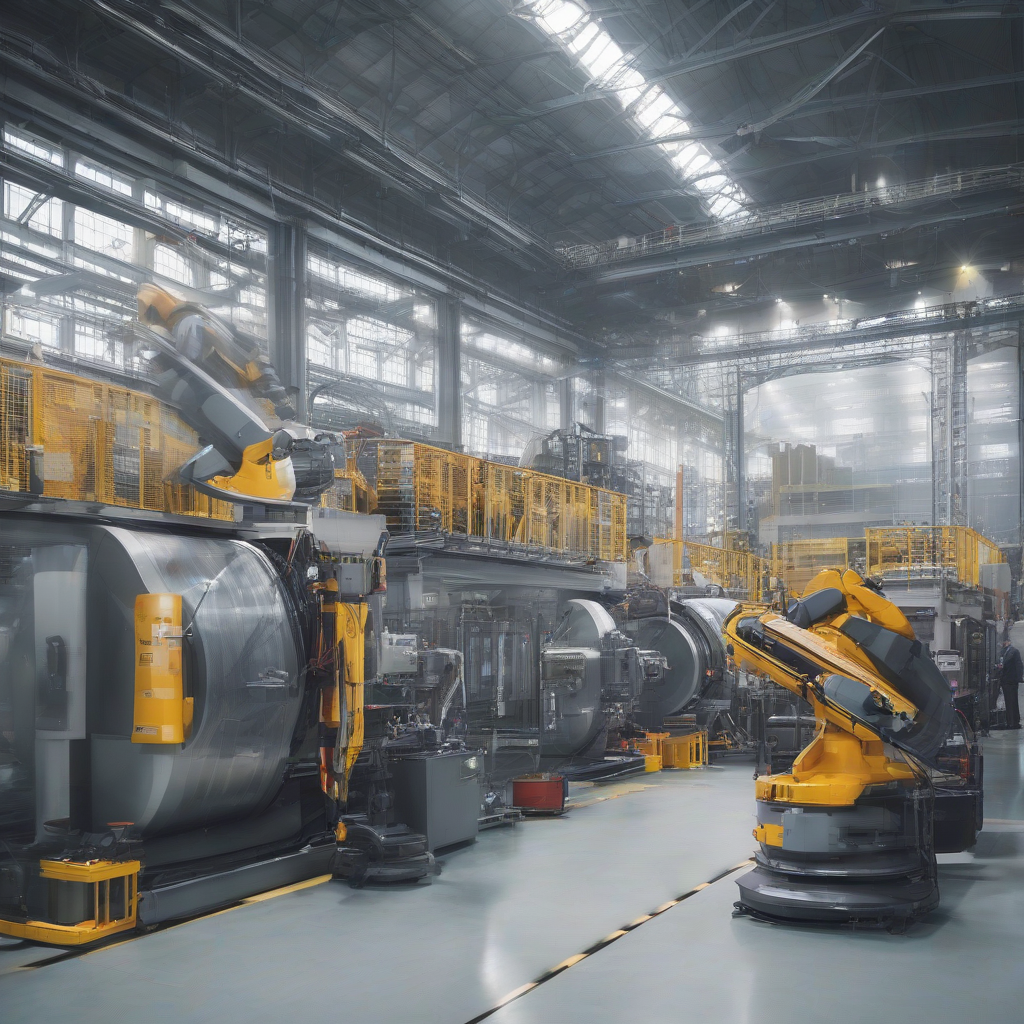Revolutionizing the Shop Floor: A Deep Dive into Industry 4.0 Manufacturing
Industry 4.0, also known as the Fourth Industrial Revolution, represents a paradigm shift in manufacturing, driven by the convergence of physical and digital technologies. This transformative era leverages advancements in automation, data exchange, and machine learning to create smart factories characterized by efficiency, flexibility, and resilience. This comprehensive exploration delves into the core components, benefits, challenges, and future implications of Industry 4.0 manufacturing.
Key Technologies Driving Industry 4.0
The foundation of Industry 4.0 rests on several interconnected technologies, each playing a crucial role in shaping the smart factory landscape. These include:
- Internet of Things (IoT): The pervasive network of interconnected devices, sensors, and machines enables real-time data collection and analysis, providing valuable insights into operational efficiency and potential issues.
- Cloud Computing: Securely storing and processing vast amounts of data generated by interconnected devices allows for advanced analytics, predictive maintenance, and collaborative decision-making.
- Big Data Analytics: Analyzing massive datasets derived from various sources identifies trends, patterns, and anomalies, ultimately informing better production strategies and optimizing resource allocation.
- Artificial Intelligence (AI) and Machine Learning (ML): AI and ML algorithms enable predictive maintenance, process optimization, quality control automation, and intelligent decision support systems, enhancing overall productivity.
- Robotics and Automation: Collaborative robots (cobots) and automated guided vehicles (AGVs) automate repetitive tasks, improve precision, enhance safety, and free human workers for higher-value activities.
- Cyber-Physical Systems (CPS): The integration of computing, networking, and physical processes creates intelligent systems capable of monitoring, controlling, and optimizing complex manufacturing operations.
- Additive Manufacturing (3D Printing): Enables rapid prototyping, customized production, and on-demand manufacturing, facilitating agility and responsiveness to changing market demands.
- Augmented Reality (AR) and Virtual Reality (VR): AR and VR technologies facilitate remote collaboration, enhance training efficiency, and improve operational efficiency by providing real-time information and guidance to workers.
- Blockchain Technology: Ensures secure and transparent supply chain management by tracking materials, products, and processes throughout their lifecycle, enhancing traceability and accountability.
Benefits of Implementing Industry 4.0 in Manufacturing
Adopting Industry 4.0 principles offers numerous advantages for manufacturers, including:
- Increased Efficiency and Productivity: Automation and optimization techniques significantly reduce production time, minimize waste, and boost overall output.
- Improved Quality and Consistency: Automated quality control systems and data-driven insights ensure consistent product quality and reduce defect rates.
- Enhanced Flexibility and Agility: Smart factories can quickly adapt to changing market demands and customer preferences, enabling faster response times and increased competitiveness.
- Reduced Costs and Waste: Optimized resource allocation, predictive maintenance, and waste reduction strategies minimize operational expenses and improve profitability.
- Improved Safety: Automation of hazardous tasks enhances workplace safety and reduces the risk of accidents.
- Better Decision-Making: Data-driven insights and advanced analytics enable informed decisions based on real-time data and predictive models.
- Enhanced Customer Satisfaction: Increased responsiveness to customer needs, product customization options, and higher product quality contribute to enhanced customer satisfaction.
- Improved Supply Chain Management: Real-time tracking and monitoring of materials and products improve supply chain visibility and efficiency.
- Increased Innovation: Data-driven insights and advanced technologies foster innovation and the development of new products and services.
Challenges in Implementing Industry 4.0
Despite the numerous benefits, implementing Industry 4.0 presents several challenges:
- High Initial Investment Costs: Implementing new technologies requires significant upfront investment in hardware, software, and infrastructure.
- Integration Complexity: Integrating various technologies and systems can be complex and time-consuming, requiring specialized expertise.
- Data Security and Privacy Concerns: The vast amount of data generated requires robust security measures to protect sensitive information from cyber threats.
- Lack of Skilled Workforce: Operating and maintaining Industry 4.0 technologies requires a skilled workforce with expertise in various technologies.
- Interoperability Issues: Ensuring seamless data exchange between different systems and devices can be challenging due to compatibility issues.
- Legacy Systems Compatibility: Integrating new technologies with existing legacy systems can be difficult and expensive.
- Change Management: Implementing Industry 4.0 requires significant organizational change management to adapt processes and workflows.
- Return on Investment (ROI) Measurement: Quantifying the return on investment of Industry 4.0 initiatives can be challenging.
- Ethical Considerations: Concerns about job displacement due to automation and the ethical implications of AI require careful consideration.
Future Trends in Industry 4.0 Manufacturing
The evolution of Industry 4.0 is ongoing, with several emerging trends shaping the future of manufacturing:
- Artificial Intelligence (AI) Enhancement: Further advancements in AI and machine learning will lead to more sophisticated automation, predictive capabilities, and decision-making systems.
- Edge Computing: Processing data closer to the source reduces latency and improves real-time responsiveness.
- Digital Twins: Virtual representations of physical assets enable simulation, optimization, and predictive maintenance.
- Blockchain for Supply Chain Traceability: Expanding the use of blockchain for enhanced transparency and security across the supply chain.
- Autonomous Mobile Robots (AMRs): Increased use of AMRs for flexible material handling and transportation within the factory.
- Human-Robot Collaboration: More sophisticated cobots will work alongside human workers in a collaborative environment.
- Sustainable Manufacturing: Industry 4.0 will play a key role in promoting sustainable practices by optimizing resource utilization and reducing waste.
- Cybersecurity Enhancements: Advanced cybersecurity measures will be crucial to protect against increasingly sophisticated cyber threats.
- Advanced Data Analytics: More sophisticated analytics techniques will enable better insights and decision-making based on real-time data.
In conclusion, Industry 4.0 represents a fundamental transformation of the manufacturing landscape. While challenges exist, the potential benefits in terms of efficiency, flexibility, and competitiveness are undeniable. By embracing these technologies and addressing the associated challenges, manufacturers can position themselves for success in the increasingly digitalized world.
